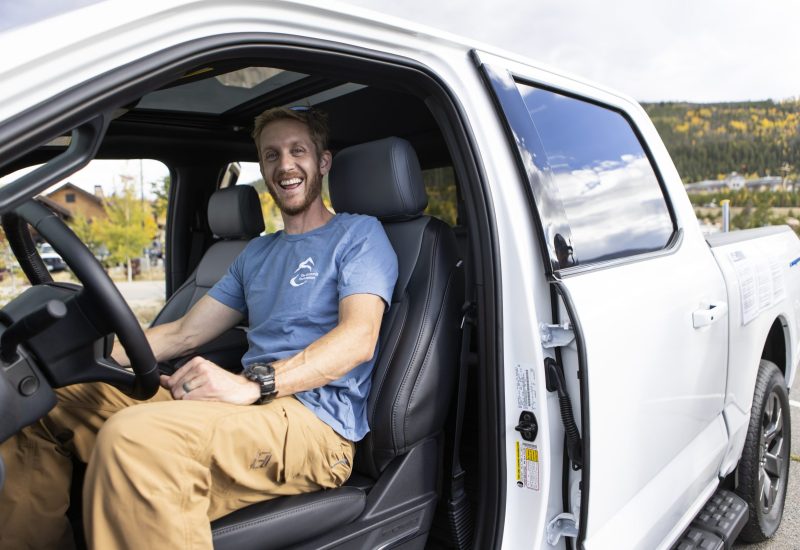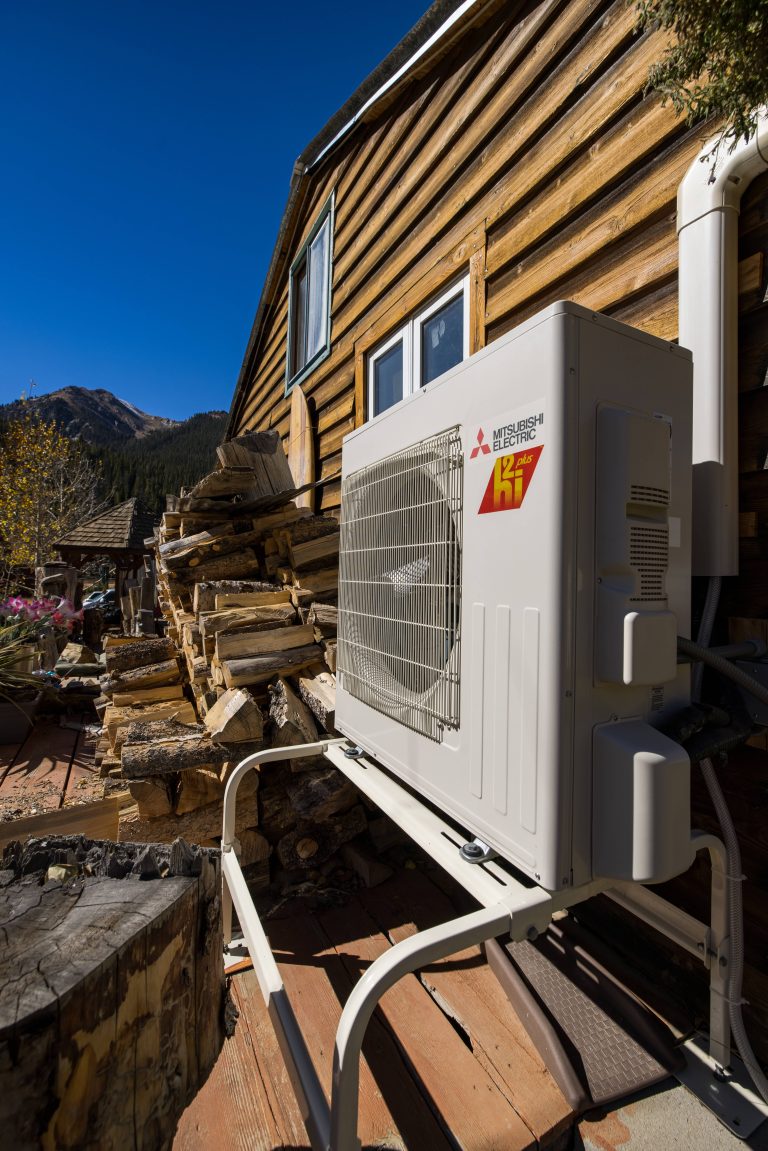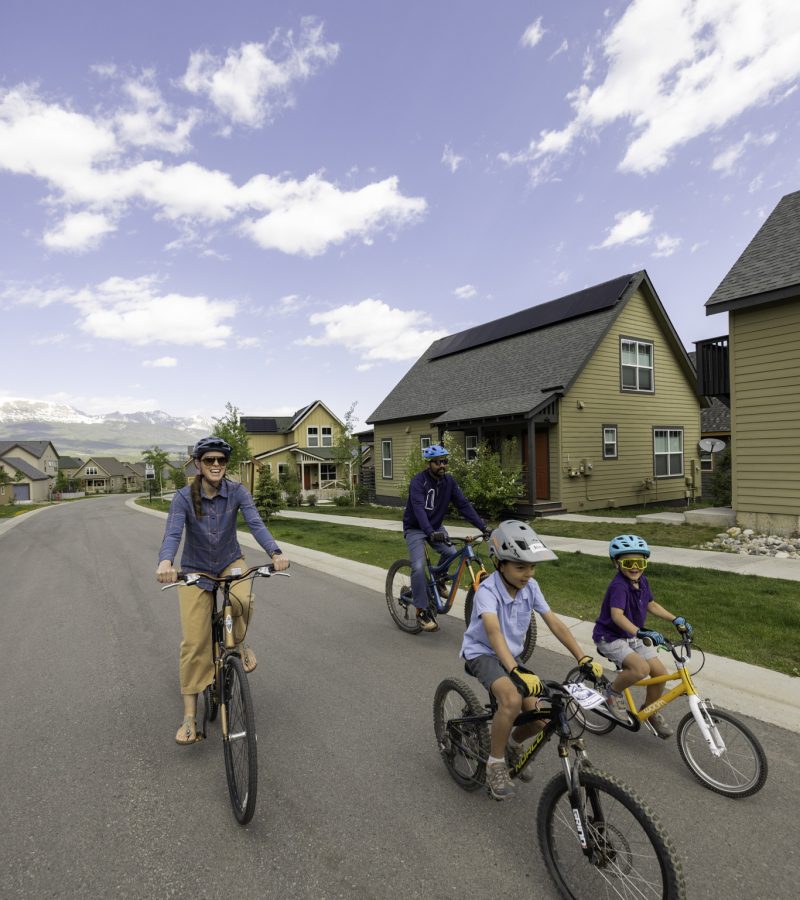What is electrification?
More electricity, less gas
Think of all the ways you rely on fossil fuels every day - from the gasoline in your car to the natural gas that heats your home and water. Electrification is the practice of using electricity to perform these tasks instead of fossil fuels. Why bother? Fossil fuels used in our homes, businesses, and vehicles account for 62% of Summit County's greenhouse gas emissions. But unlike electricity, fossil fuels can't be renewably generated. Meanwhile, our local electricity grid is getting greener every year. By 2030, 80% of our electricity will be renewable. So, the more we can use electricity for heating and transportation, the more we'll decrease our greenhouse gas emissions.


Ways to Electrify
A good place to start is by taking inventory of the gas-burning appliances you have at home. Remember, you don’t need to electrify everything all at once. Instead, consider which will need to be replaced first and make a plan. By looking into an electric alternatives before your appliance fails, you’ll be ready when replacement time comes.
Most homes in Summit County heat with natural gas. Compared to newer furnaces or boilers, which are often 95 – 97% efficient, modern cold climate heat pumps are 175% efficient in cold temperatures, and upwards of 300% efficient in moderate temperatures. Heat pumps can either replace your natural gas heating system completely or provide the majority of your heating needs, leaving your furnace or boiler to provide supplemental heat only during the coldest days of the year.
Water heating is the second highest use of energy in our homes. Heat pump water heaters, also known as hybrid water heaters, are 3 – 4 times more efficient than traditional water heaters.
Light-duty vehicles – the kind most of us drive every day – generate over 75% of local transportation emissions. The alternative? Electric cars and trucks! They perform great in the mountains, are less expensive to charge and maintain than gas-powered cars, and they’re fun to drive. Check out our EV video series to learn more about why Summit County locals love driving electric.
Got other gas-burning appliances? There are electric alternatives to almost everything — including ranges, clothes dryers, and even yard equipment. For inspiration, check out HC3’s videos about induction cooktops and electric snowblowers. And head to Rewiring America’s website for more details about how to electrify, well, everything.
Electrifying Incentives
Electrification is all the rage these days, which is why there are so many incentives for kicking gas. And the best part is that most incentives are stackable, which means bigger discounts for you. Between High Country Conservation Center, Xcel Energy, the state of Colorado, and the federal government, rebates and tax credits are available for the following appliances:
- Electric panel upgrades
- Electric yard equipment
- EV charging
- Induction cooktops and ranges
- Heat pumps, heat pump water heaters, heat pump clothes dryers
- Solar panels and solar thermal water heating
For more information about incentives and eligibility, call HC3’s Energy Team at (970) 668 – 5703.
Electrify Breck
Do you live in a deed-restricted home in Breckenridge? If so, you qualify for the Electrify Breck heat pump program! Electrify Breck provides a streamlined process for upgrading your home’s existing heating system to a cold climate heat pump. And with generous incentives, you’ll only pay 25% of the total project cost.

Electrification Questions
Yes, you will receive curbside recycling. The new Pay as You Throw program will bundle trash and recycling service for all residents with individual bins. This will give you the convenience of having single stream recycling at your home. Single stream recycling will allow you to recycle metal cans, paper, as well as plastic bottles, jugs and tubs all in one bin. Glass is not included in Summit County’s single stream. You may continue to use the recycling centers which also accept glass, food waste and juice cartons.
Pay as You Throw applies to all residents with an individual bin, including group accounts paid through an HOA. Waste haulers will work with HOAs directly to determine options for each group account.
No, there are no plans for the free recycling centers to close with these new programs in place. Summit County Government operates three free recycling centers in Breckenridge, Frisco, and Silverthorne for residents. Residents who have curbside recycling collection are encouraged to recycle glass and food scraps at the free sites to reduce the amount of trash being landfilled.
Local governments cannot tell private companies how much they can charge for their services. Under the Pay as You Throw (PAYT) program, waste haulers will be required to provide curbside recycling collection to all customers who have trash collection. This combination of recycling and trash service will be offered for one monthly price. In addition, towns will require that waste haulers offer three sizes of trash bins (small, medium and large—which will be defined with gallon sizes). The small trash bin with recycling service will be considered the “base” rate. The medium trash bin service level will cost 80% more than the base rate, and the large trash bin service level will be an additional 80% increase from the base rate. The lower cost of the smaller trash bins incentivizes residents to recycle more and produce less trash. Please watch HC3’s informational video forum for further details.
Based on data from other communities with PAYT in place, we expect 50% or more of full-time residents to opt for a medium or small trash bin. In other Colorado communities, residents that opt for the small trash bins have saved money compared to pre-PAYT pricing, and residents who have opted for large trash bins are paying more than before PAYT was in place. In the same way that residents pay less for electricity or water than their neighbors who use more electricity and water, people that produce less trash will now pay less than their neighbors who generate more garbage.
Waste Management and Timberline will purchase the new bins. These companies prefer to use their own bins, as they know they work with their trucks and have branding that is visible down the street. Some of the smaller waste haulers require customers to buy their own bins, but this will not be a change since that's the way it currently works. If a Waste Management or Timberline customer has their own bin that works with that company's trucks and is approved by that company, a customer can continue to use their own bin.
The trash providers will keep any large bins that are traded in for smaller sizes, as long as the bins are in good condition and don't have an old company name (such as a company that is no longer in service). There is adequate demand for bins, so the companies will keep them in rotation. HC3 expects to offer a temporary bin recycling program for customers to bring old bins that are damaged or have old company names on them.
